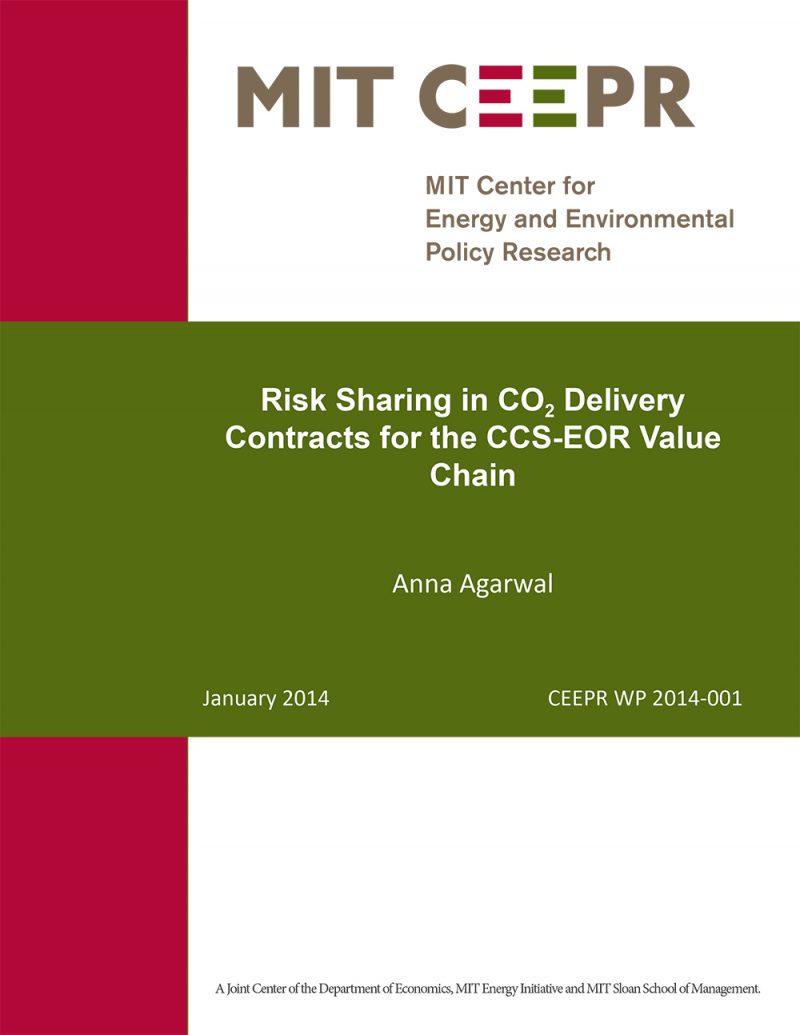Risk Sharing in CO2 Delivery Contracts for the CCS-EOR Value Chain
Anna Agarwal
January 2014
A key reason for poor performance in large capital projects is the weak incentives facing the involved entities to deliver optimal project outcomes. The weak incentives arise from misalignment of interests of the individual entities with the common interest of the project, thus resulting in sub-optimal decisions that do not maximize the overall project value. Contractual risk-sharing is key to aligning the interests of the individual entities and incentivizing them to make optimal decisions. We develop a framework to quantify the impact of the project contract terms on the financial value of large energy capital projects. We focus on a prototype carbon capture and storage (CCS) project wherein the power plant company (that captures the CO2) is linked to the oil field company (that stores the CO2 for enhanced oil recovery, EOR) through a long-term CO2 delivery contract. We evaluate alternate CO2 contract structures in terms of the incentives the contracts provide to the individual entities to respond to changes in the market risk factors (oil price, electricity price, and CO2 emission penalty). The results show that inappropriate risk allocation, as in fixed price CO2 contracts, leads to significant loss in project value. This loss under fixed price CO2 contracts is due to high contracting risks associated with ex post insolvencies and weak incentives for contingent decision-making. We find that risk sharing offered by oil-indexed price CO2 contracts significantly reduces the contracting risks and thus considerably increases the project value compared to a fixed price CO2 contract. Analyzing the weaknesses of alternate CO2 contract structures gives insights into the design of optimal CO2 contracts for the CCS-EOR value chain.
Keywords: risk management, contract design, risk sharing, capital projects, CCS



